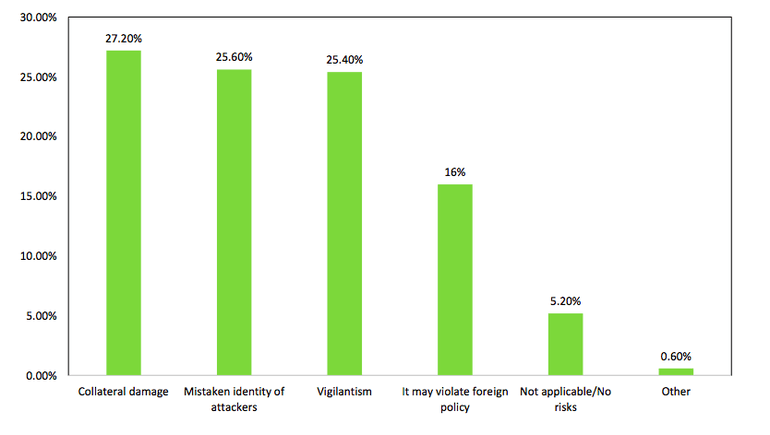Hack Back: Tired of the attacks of hackers; Some companies are willing to hack the hackers, but the risks of hacking back are likely to far outweigh the benefits.
With hack back they will be able to locate the systems they use and delete the stolen information. They can destroy their computers, which is currently illegal. 
The above refers to a company survey Fidelis cybersecurity. Research indicates that many businesses believe they have the ability to react aggressively to hacking attacks if they so wish.
More than half of respondents said that businesses should be able to attack hackers, and that they have the technical ability to identify an attacker, penetrate their systems and destroy any stolen data after a breach. cyberattack.
More than half of company executives said that if it were legal, they would prefer to attack to get the keys fromencryptions after a ransomware attack rather than paying criminals to regain access to their data.

Image: Fidelis
But despite their belief that they could deal with hackers, in reality most businesses lack these skills, said Andrew Bushby, director of Fidelis. Cybersecurity in the UK.
The main concerns about such a strategy are whether they can identify the real offender. There is, of course, the risk of collateral damage, according to the survey.
In fact, to the question of whether companies are financially responsible for any damage caused to innocent computers in a hack back, 63% said the company would be less likely to attempt it, although a 15% said it would He made.
The above is not a totally academic debate: in the US, the law that is being discussed about active cyber security would make cyber hacking legitimate.





